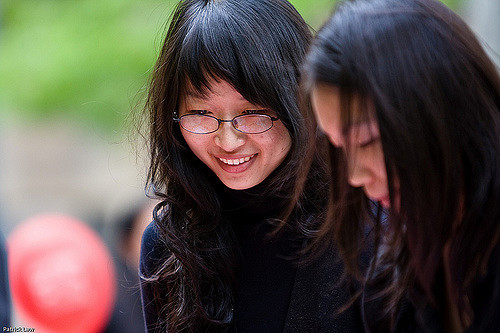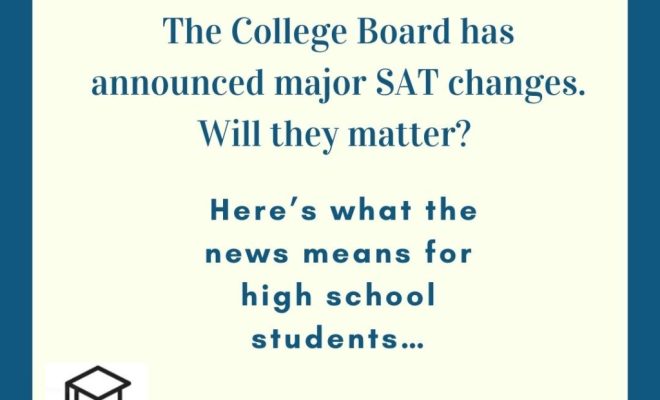Why don’t kids speak up about bullying?

**The Edvocate is pleased to publish guest posts as way to fuel important conversations surrounding P-20 education in America. The opinions contained within guest posts are those of the authors and do not necessarily reflect the official opinion of The Edvocate or Dr. Matthew Lynch.**
A guest post by Jennifer Fraser
We keep telling kids they must not be bystanders, but what really happens when students speak up about bullying? Why are they so afraid?
Not only do they risk becoming the bully’s next target, but it seems that all too often when students report on bullying a reversal occurs and they become the ones who are in trouble. They are seen as a problem. If the bully is a teacher or a coach, these students might even be shamed or humiliated for daring to jeopardize the adult’s reputation.
If we truly do want students to report on peer bullying and report on abuse by adults in caregiver positions, then we need to change the way in which these complaints are handled in schools and in the law. The first thing a lawyer will ask a bullied child – whether it is by peers or teachers – why didn’t you transfer schools? Expecting the victim to leave suggests that the victim is at fault. If my house is robbed twice, the lawyer will not ask me why I didn’t move. If I’m sexually harassed at work, the lawyer will not ask me why I didn’t find another boss. So why do lawyers ask students bullied at school why they didn’t leave?
In Rod Mickleburgh’s Globe and Mail article, written after Amanda Todd’s suicide as a result of bullying, he consulted with another family whose son, Ashkan Sultani, also committed suicide after being bullied. Sultani’s father pointed out that both his son and Amanda were vulnerable because they had learning disabilities. Rather than be accorded special care, as the Ministry of Education documents state educators and administrators must use, Ashkan’s father found that there was a reversal: bullies were exonerated and victims were held accountable: “Too often, [Ashkan’s father] said, school officials become defensive when approached by parents with concerns their child is being bullied. ‘They don’t want to admit there’s a problem. Or, the first thing they do is try to find out what is wrong with the person getting bullied. How come he doesn’t fit in?’”[1]
This reversal is intensified when students report on teacher or coach conduct.
In the articles I have read about Assistant Coach and Whistleblower Eric Murdock, whose contract was not renewed after he went public with his concerns about basketball coach Mike Rice’s abusive conduct, there is a glaring lack of a proper process in place for reporting on bullying or abuse. Although Mike Rice yelled in apparent fury when coaching games, it was actually his conduct at practices that got him fired. As reported by Steve Eder in the New York Times, there were all kinds of warning signs that abuse was occurring and the administrators were already aware prior to video footage hitting the news:
There was the upperclassman who earlier in the year had come forward to say that he felt bullied. There was an outburst during a game that led to Mr. Rice’s ejection. And there were the months of allegations from a former assistant, who repeatedly claimed that Mr. Rice was abusive.
Tim Pernetti, the athletic director, knew all of that and had repeatedly tried to rein in Mr. Rice, according to a 50-page report that Rutgers commissioned outside lawyers to prepare. He personally reprimanded him, attended Mr. Rice’s practices and even assigned the university’s sports psychologist to work with the team, the report said.[2]
Note that the University commissioned a legal report, but they do not appear to consult Human Resources personnel in terms of the whistleblower’s vulnerable position nor do they consult experts in student health to assess the harm being done to student-athletes.
I acted as Whistleblower once at an independent school. Being Whistleblower is the adult version of not being a bystander and from my experience, I understand why students do not speak up. Just like it seems to do for bully victims, a reversal happened: I was treated as if I was a problem employee. The Headmaster exonerated the teachers about whom 14 students gave testimonies detailing bullying conduct and allowed a toxic environment to emerge around me so that I ultimately resigned.
There wasn’t just one student who came forward to say he was feeling bullied, there were 14. There was a Lawyer/ parent’s report informing the school that “child abuse” was occurring in 2011. There were at least thirty parent complaints in 2012 alone. There were many warning signs. It seems that at best, institutions like Rutgers and my former school lack the necessary processes for handling abuse situations; at worst, they have significant conflict of interest in themselves investigating student concerns. There is clearly work that needs to be done in terms of Human Resources, record keeping, anonymous reporting, proper oversight and so on if we truly do want students to not be bystanders.
In a 2013 article in The Atlantic psychologist, Dr. Joseph Burgo studies the power of reversal whereby the abuser positions himself as the victim and he uses cyclist Lance Armstrong’s conduct as an example. Witnesses who first spoke up about Armstrong’s performance enhancing drug-use were humiliated by the cyclist in the press: “To shore up his winner status, Armstrong wanted to make his detractors appear like contemptible losers; he tried to turn public opinion against them, enlisting the support of his many fans.” In Canada, disgraced Canadian musician, writer, and former CBC radio broadcaster, Jian Ghomeshi presented himself on Facebook as being the victim after being accused of sexual assault: “I’ve been fired from the CBC because of the risk of my private sex life being made public as a result of a campaign of false allegations pursued by a jilted ex girlfriend and a freelance writer.”[3] He has since been charged with multiple counts of sexual assault.
Notably, this dual personality type or charismatic bully appears to be especially attracted to competitive sports because of the win-lose dynamic. Dr. Burgo explains:
It helps to view the bully as a kind of competitor on the social playing field, one who strives not only to win but to triumph over the social losers and destroy their sense of self. As in competitive sport, where winners and losers exist in a binary relation to one another, the bully is yoked in identity to his victims. To a significant degree, his self-image depends upon having those losers to persecute: “I am a winner because you are a loser” [emphasis in the original].
The Headmaster and Board of Governors of my former School responded to students and parent reports of abusive behavior by the adult involved by publicly discrediting them in a report written by a lawyer that said the students were telling manufacturing evidence and lying.
This is why students do not speak up. This is why Whistleblowers are so rare. We can keep encouraging students to report bullying and more importantly abuse, but they won’t do it until they actually know that they will be respected and protected. At present, that is not the case. For further discussion, please see my forthcoming book: Teaching Bullies: Zero Tolerance on the Court or in the Classroom.
[1] Rod Mickleburgh, “Before Amanda Todd, the Sultani family suffered silently,” The Globe and Mail, October 23, 2012 http://www.theglobeandmail.com/news/british-columbia/before-amanda-todd-the-sultani-family-suffered-silently/article4633468
[2] http://www.nytimes.com/2013/04/07/sports/ncaabasketball/rutgers-officials-long-knew-of-coach-mike-rices-actions.html?pagewanted=1&_r=1&smid=tw-nytimes&partner=rss&emc=rss
[3] Staff, “Full Text: Jian Ghomeshi’s Facebook Post Why He Believes CBC Fired Him,” Global News, Oct 2014: http://globalnews.ca/news/1637310/full-text-jian-ghomeshis-post-on-why-he-believes-cbc-fired-him/
____
Jennifer Fraser has a PhD in Comparative Literature from the University of Toronto and is a published writer. She is presently teaching creative writing and International Bacclaureate literature classes at an independent school in British Columbia.





